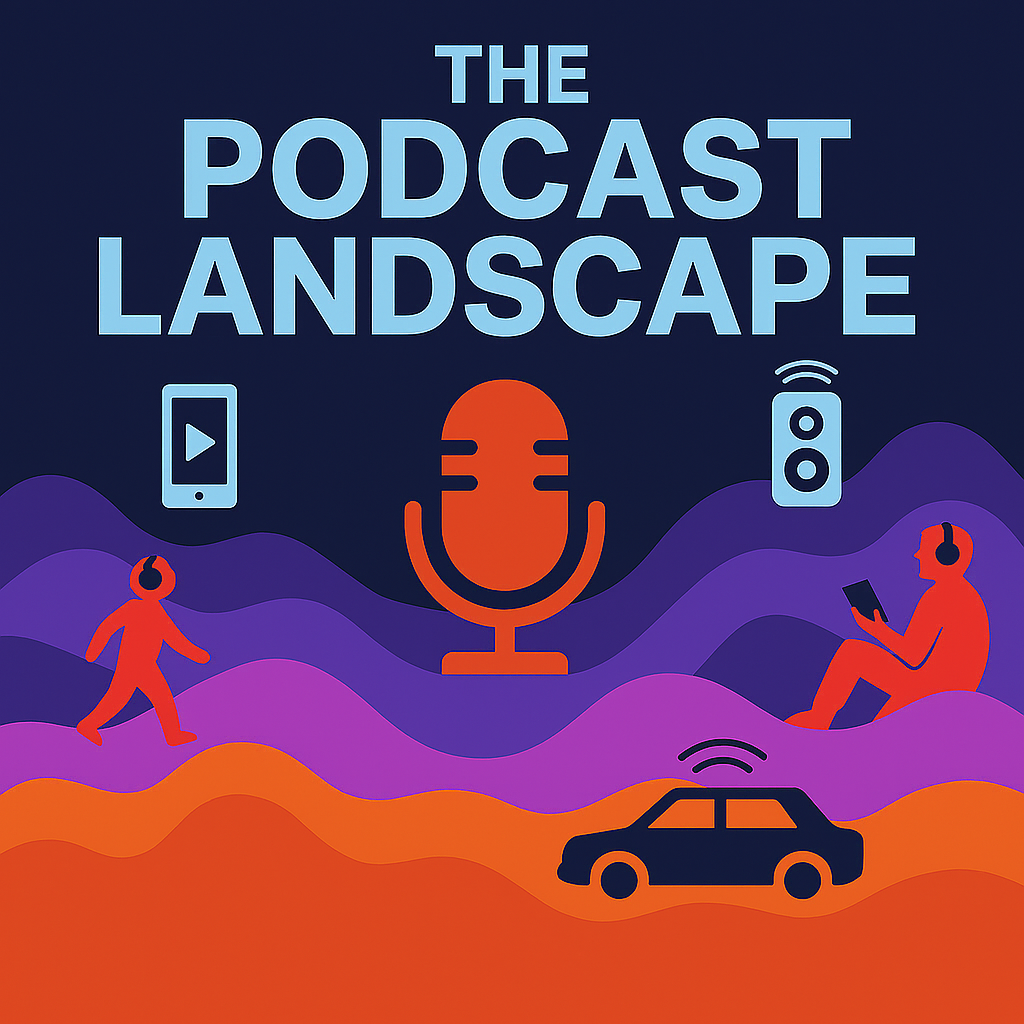This Week in the Business of Podcasting
This week the accidental theme that presents itself in the news is one of aspiration and collaboration. Podcasting can, has, and will continue to improve and evolve itself. With that in mind, let’s get into the news.
Sounder Debuts Open APIs For Transcription
This Thursday from Ryan Coughlin: Sounder has released open APIs for use by the podcast industry. The APIs (application programming interface) include the core tech behind their speech-to-text functionality, making their automatic speech recognition and transcription tech available to the wider industry. Highlights of what Sounder’s APIs could help others achieve include jump-starting podcast discovery, give creators more targeting capabilities, and foster collaborative communities.
In the post, Coughlin interviews Bryan Barletta about both Sounder’s APIs and the overall benefit of others in podcasting following suit. In response to a question about how open APIs might help innovation in podcasting, Barletta says any solution that allows developers to start at “step two” of a process by starting with step one already finished advances an entire industry. Small teams with big ideas can start with momentum instead of starting from scratch. A quote from Bryan Barletta, continuing on the same theme and how it can also impact industry standards:
“Innovation is stifled by repeating step one over and over and over again. IAB Podcast Certification is a great example of an incredibly intensive process collectively built to get us all sharing the same data, held to the same standards, even though we all went about it in different ways. I’d like 2024 to be the year where we take an objective look at what “step one’s” we need to move past by standardizing and making more accessible. Sounds Profitable is excited to be part of that conversation to make sure we accomplish that successfully as an industry.”
Sounder calls to others in the industry to work on a collaborative and ethical future for podcast tech. A live discussion on the same topics will be held in a webinar titled Audio APIs: A Game-Changer this coming Tuesday, January 30th, at 2:30 p.m. EST.
How Podcast Networks Are Testing Out AI
This Tuesday from Sara Guaglione at Digiday: Representatives from networks like Acast, iHeartMedia, and Spotify shared what they’re currently testing in the world of AI, ranging from client outreach to language translation.
On the transcription front, iHeart intends to use generative AI tech to translate podcasts for international markets, further globalizing the medium. Though the exact tech they’re using is being kept under wraps. The effort is similar to Spotify’s public demonstration of their own AI translation last year with several alternate versions of an Armchair Expert episode in different languages.
On the marketing side of the industry, Acast is using Collections+ to pull podcast and listener data from different sources to group podcasts in contextual categories. This allows smaller shows that might otherwise have been overlooked to be packaged together to meet advertisers’ briefs. iHeart is also testing tools like Jasper and Microsoft Copilot as aids for research and writing assistants.
A common denominator is the tools being tested are purely behind-the-scenes, with none of the executives interviewed expressing interest in generative AI tools to replace human hosts. A quote from iHeartMedia CEO Conal Byrne:
“We’re cautious about saying that AI can do things that unique, incredible human talent can do today. But as a sort of a personal assistant if you will, to every single producer or executive producer we have – that’s the vein we’re interested in exploring. And [we’re] not overstating it – not saying that AI is going to completely invert and disrupt all of media. It’s not.”
Acast’s chief business officer Greg Glenday says the company is not interested in using AI tools to create ads or replace podcast hosts, saying he can’t imagine listening to a virtual voice review movies once a week.
Analysis of 28.5 Million Podcast Reviews on US Apple Podcasts
This Monday from Dan Misener at Bumper: Back in 2020, Misener published an analysis of 20 million Apple Podcast star ratings. Now he has returned with a refresh covering 1.7 million podcasts on Apple Podcasts with a total of 28.5 million ratings in the U.S.. The first finding to pop out are the top five most-rated podcasts on the platform have a lot of ratings.
Wondery’s Dr. Death in fifth place has 87,000 reviews. A fair amount for a podcast with a successful TV adaptation, but then one jumps to My Favorite Murder in second place, which has 162 thousand ratings. Crime Junkie locks in first place with around 344 thousand.
Overall on the platform, most podcasts have zero star ratings. Only 28% of the 1.7 million analyzed had at least one review left by a listener. When reviews are left on a podcast, they’re likely five stars. 87% of all star ratings in the US version of Apple Podcasts are perfect 5 star scores.
Misener sorts all categories in Apple Podcasts by average star ratings per show. The top five, in ascending order, are News Commentary, Golf, After Shows, Wilderness, and True Crime. Though it should be said true crime has over three times the average star rating per show than Wilderness, which might be an artifact of the staggering amount of reviews My Favorite Murder and Crime Junkie have racked up over the years. Which leads to a valuable lesson from this data: properly leveraged podcast audiences can move mountains. To the point two podcasts with famously engaged fanbases have fully cemented themselves in the top two most-rated shows on podcasting’s first platform.
Not All Video Podcast Ads Are Created Equal
Last Thursday from Kedric Walls on the Veritone One blog: Not all podcast ads are created equal, especially in video. While YouTube is a dominant force when it comes to platforms where people consume podcasts, its native ads have a tendency to be jarring and backfire for brands trying to advertise on podcasts.
According to Sounds Profitable’s study Sound You Can See: Podcasting’s Video Dilemma, native YouTube ads (ads served by YouTube that automatically stop the video until the ad completes or it is skipped) were the top complaint among respondents. 43% used the term “annoying,” followed by “disruptive, too frequent, irrelevant,” and “too long.”
A way for brands to avoid being seen as a disruptive force interrupting the podcast is to book host-read ads on desired video podcasts. A format that both takes advantage of podcasting’s strengths, and allows for more natural transitions to and from advertising content within the program itself.
Quick Hits
While they may not be top story material, the articles below from this week are definitely worth your time:
-
The “Why” of Your Podcast by Tom Webster. This week Tom shares an excerpt from his upcoming book, focusing on figuring out the all-important detail of why someone listens to a podcast.
-
Paramount Won’t Return to TV’s Upfront Week in New York by Brian Steinberg. Despite CBS usually being a big-ticket player in flashy New York upfronts, Paramount Global is taking this year to focus on intimate in-person meetings with select advertisers.
-
SCOOP: Are awards worth it for Canadian podcasts? by Kattie Laur. A deep dive into confusion and controversy surrounding last year’s Signal awards.
-
Brands Are Getting Shy On DEI, But Reaching Diverse Audiences Is Still Good Business by Anthony Vargas. Minority-owned publishers have a big hurdle to overcome, as despite regularly providing higher ROI than more generic competitors, buyers aren’t finding their inventory in the first place.
-
Manifest Media Announces Strategic Partnership with Realm to Expand its Creative Influence in Podcasting. The collaboration aims to bring Manifest’s catalog of new and upcoming audio fiction to Realm’s platform.
-
Ossa Announces 2nd Event In 10-Part Series On Creators and Podcast Advertising Partners. The session will focus on where to find podcast hosting services and tips on evaluating the best one for a given podcaster’s needs.













































































































































































































